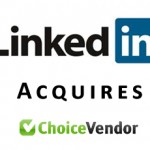 Los Angeles — Software major Microsoft on Wednesday disclosed plans that it will offer its Microsoft Security Essentials (MSE) anti-malware solution product for free to small businesses with up to ten computers, starting in October.
Los Angeles — Software major Microsoft on Wednesday disclosed plans that it will offer its Microsoft Security Essentials (MSE) anti-malware solution product for free to small businesses with up to ten computers, starting in October.
Since its debut in September 2009, the package, which is the successor to the ill-fated OneCare suite, includes antivirus and anti-adware software, has been available free of charge to consumers for single-PC use, but not to the enterprise crowd. But, beginning next month, however, small businesses will be able to add the security product on up to 10 PCs at no cost.
“It is no secret that most small businesses today do not have a devoted IT professional on staff to manage their IT resources,” Eric Ligman, Microsoft global partner experience lead, wrote in a blog post. “Small business owners and employees are focused on running their business, not managing complicated IT infrastructure.”
“But if you are well-off with more of a set it and forget it solution, and are looking for an easy way to save money, Microsoft Security Essentials is definitely worth a look,” he said. However, those who “want virus and malware protection to be centrally administered and integrated with group policy settings” could go for Microsoft’s paid-for Forefront suite instead, Ligman added.
Security Essentials is one of several free security packages available for download, with significant rivals including AVG and Avast. However, these two package restrict their free editions — both operate a ‘freemium’ business model, meaning users can pay for added functionality — to personal, non-commercial use.
Moreover, it is powered by the malware protection engine that drives Microsoft’s enterprise solutions, he said. The product also uses a scanning and removal technology to collect threats from more than 600 million PCs monthly, which are then assessed by the Microsoft Malware Protection Center. New signatures are written and deployed daily, he wrote.
Of course, the concept of free antivirus solutions for companies is not something new. Other vendors have considered it for quite some time, but were impeded by problems like distribution or differentiating between free and paid solutions in a business environment.
While Windows 7 machines are not necessary to use Microsoft Security Essentials, Ligman did advise businesses to consider upgrading. “With Windows 7 Professional, we prioritized speed, reliability, compatibility, and connectivity to keep their systems up and running,” he wrote.
“When we launched Microsoft Security Essentials last year, small businesses kept telling us that it was exactly the type of thing they need at work too,” Jeff Smith, director of marketing for Microsoft Security Essentials, said in a statement.
Microsoft Security Essentials provides real-time protection from viruses, spyware, and other malicious threats, Ligman said.
Currently, the licensing agreement states users “may install and use any number of copies of the software on your devices in your household for use by people who reside there or for use in your home-based small business.”
“What it denotes is that Microsoft Security Essentials can be installed on up to 10 PCs, no matter if they are home-based or office-based,” a Microsoft spokesperson said in a statement. “We view users operating a business out of their homes not to be ‘home users’ — even though the business is based out of their home.”


